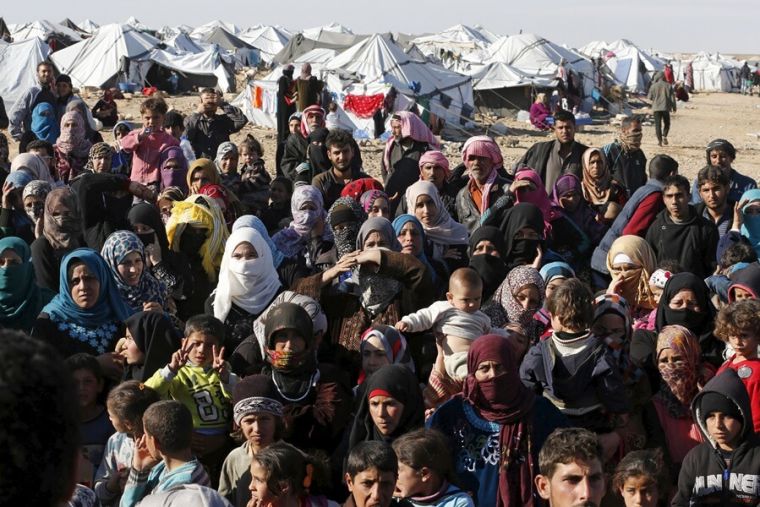Italian evangelical churches help open 'humanitarian corridor' to 1,000 refugees

An Italian ecumenical mission is in Lebanon to finalise details of a project that aims to relocate 1,000 refugees to Italy on humanitarian visas "to save people from embarking on deadly journeys across the Mediterranean.''
Marco Impagliazzo, the head of the mission, said the $1.42-million project was launched following an agreement signed by the Community of Sant'Egidio, the Federation of Evangelical Churches in Italy and the Waldensian Table in cooperation with the Interior and Foreign Affairs Ministries.
The project will allow about 1,000 asylum seekers currently in Morocco, Lebanon and Ethiopia to travel to Italy with a humanitarian visa, the cost of which will be provided by the associations themselves, Impagliazzo said, according to Gospel Herald.
"The project resembles a peace treaty because it allows us to save numerous lives and avoid exploitation by traffickers,'' Impagliazzo told the Associated Press. "It will allow people who have the right to enter our country to finally do so, avoiding the so-called journeys of death.''
The visa has another advantage: security. Under the project, he said security "will be at its maximum" compared to those arriving on boats, because "thorough checks will be carried out and digital fingerprints taken.''
According to the plan, the first goal is to airlift an initial group of about 100 of the most vulnerable refugees, most of them Syrians who are sick, disabled or elderly, or women alone with young children, from a Lebanese camp by the end of January or early February, said Impagliazzo.
After arriving in Italy, the refugees will begin the asylum process. Once the required security checks are conducted, the consulate will then process their visas. The first "humanitarian corridor'' will open with the refugees taking a commercial flight to Italy.
The refugees will take part in an integration programme, which will include Italian lessons, help with finding a job and school enrolment for children, said Impagliazzo.
Luca Maria Negro, president of the Federation of Evangelical Church in Italy, expressed satisfaction with the project, saying the presence of foreigners in Italy "is not just about welcoming others, it is also good for the country's economy and pension system.''
He said: "It cannot be that in Italy today there is still no space for a woman who needs to give birth just like Jesus' mother at Christmas.''
Carlotta Sami, a spokeswoman for UNHCR in southern Europe, said they hope more countries will follow this example.
U.N. refugee agency representatives said they welcome private sponsorship initiatives that enable vulnerable or needy refugees to reach safety and start new lives in third countries.
Eugenio Bernardini, the moderator of the Waldensian Table, said there is currently one million euros available for the project and that other donations are expected, Vatican Insider La Stampa reported.











